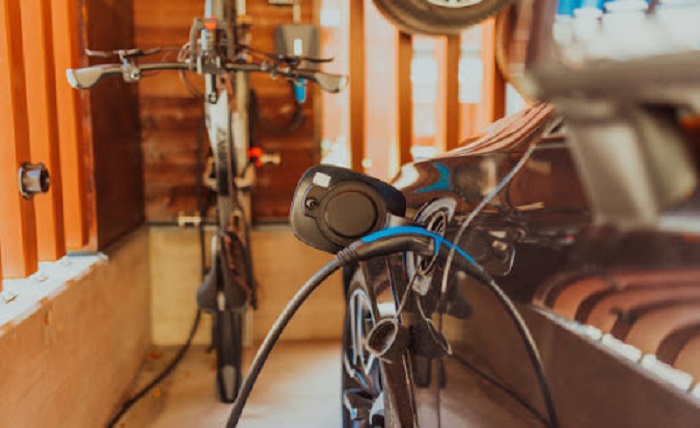What Are the Different Types of EV Chargers Available for Installation in Brisbane?

Electric vehicle chargers are devices that convert AC power from the grid into DC power to charge the batteries of electric vehicles. There are three main types of EV chargers available for installation in Brisbane:
- Level 1 EV Chargers: These chargers usually have a 120-volt outlet and can charge an electric vehicle in about 8 hours.
- Level 2 EV Chargers: These chargers have a 240-volt outlet and can charge an electric vehicle in about 4 hours.
- Level 3 EV Chargers: These chargers have a 480-volt outlet and can charge an electric vehicle in about 30 minutes to 1 hour.
Different Types of EV Chargers Available in Brisbane
As per professionals in EV charger installation Brisbane, there are different types of EV chargers available in Brisbane including Level 1, Level 2, and Level 3 chargers.
- Level 1 Chargers: Level 1 chargers are the slowest type of charger, and they typically take around 8 hours to charge a standard EV battery. These chargers can be plugged into a standard 120-volt outlet, and they are usually the cheapest type of charger to purchase and install.
- Level 2 Chargers: Level 2 chargers are faster than Level 1 chargers, and they can typically charge an EV battery in 4-6 hours. These chargers require a 240-volt outlet, and they are more expensive than Level 1 chargers.
- Level 3 Chargers: Level 3 chargers are the fastest type of charger, and they can charge an EV battery in as little as 30 minutes. These chargers require a high-voltage DC outlet, and they are the most expensive type of charger to purchase and install.
Level 1 Charger
There are three main types of EV Chargers available for installation in Brisbane: Level 1, Level 2, and Level 3.
- Level 1 Chargers are the slowest type of charger, but they are also the most affordable and can be plugged into a standard 120-volt outlet. Level 1 chargers typically take around 8 hours to charge an electric vehicle.
- Level 2 Chargers are faster than Level 1 chargers and can charge an electric vehicle in 4-6 hours. Level 2 chargers require a 240-volt outlet, which is often found in homes and businesses.
- Level 3 Chargers are the fastest type of charger and can charge an electric vehicle in as little as 30 minutes. Level 3 chargers require a high-power 480-volt outlet, which is not commonly found in homes or businesses.
Level 2 Charger
The Level 2 charger is the most popular type of charger for electric vehicles. It can be plugged into a standard 240-volt outlet and is capable of charging an electric vehicle in 4-6 hours. Level 2 chargers are perfect for home or office use, and many public places such as shopping centers and car parks now have them installed.
DC Fast Charger
There are three main types of electric vehicle (EV) chargers available for installation in Brisbane: Level 1, Level 2, and DC Fast.
- Level 1 EV chargers are the slowest type of charger, and are typically only used for overnight charging at home.
- Level 2 EV chargers are faster than Level 1 chargers, and can be used for both home and public charging.
- DC Fast Chargers are the fastest type of EV charger, and are typically only found at public charging stations.
So, which type of EV charger is right for you? It depends on your needs and preferences. If you only charge your EV at home, a Level 1 or Level 2 charger should be sufficient. However, if you frequently drive long distances or want the convenience of being able to charge your EV quickly when away from home, a DC Fast Charger may be a better option.
Benefits of Installing an EV Charger at Home or Office
Electric vehicle (EV) chargers come in many different shapes and sizes, but they all have one thing in common: the ability to charge your EV faster than a standard household outlet.
- If you’re considering installing an EV charger at home or office, there are a few things to keep in mind. First, decide what type of charger you need. Second, consider the installation process and any necessary permits. Lastly, factor in the cost of the charger and its installation.
- The most important consideration when choosing an EV charger is compatibility with your vehicle. Make sure to check what type of connector your car uses before purchasing a charger. The three most common types of connectors are Type 1 (J1772), Type 2 (Mennekes), and Chademo/CCS.
- Type 1 connectors are typically found on older EVs, while Type 2 connectors are standard on newer models. Chademo/CCS connectors are relatively new but are becoming increasingly popular, especially on fast-charging stations.
- Once you’ve selected the right charger, you’ll need to consider installation costs and any necessary permits. Many electricians can install EV chargers, but it’s always best to hire a professional who has experience with this type of work. The cost of installation will vary depending on the complexity of the job, but it’s generally worth paying for professional help to ensure that everything is done correctly.
Factors to Consider When Choosing the Right EV Charger for Your Needs
When it comes to choosing an EV charger for your home or business, there are a few factors you need to take into account. Below, we outline some of the key considerations you should make when selecting the right charger for your needs:
- The type of vehicle you drive – There are different types of EVs on the market, each with different charging requirements. Make sure you choose a charger that is compatible with your vehicle.
- How often you charge – If you only charge your EV occasionally, then a lower-powered charger will suffice. However, if you plan on charging regularly, then you’ll need a more powerful unit.
- Where you charge – Some chargers are designed for indoor or outdoor use, so make sure you choose one that can be used in the location where you intend to charge your EV.
- Your budget – Chargers vary widely in price, so it’s important to set a budget and find a unit that meets your needs without breaking the bank.
Finding a Professional Electrician for Installation in Brisbane
- If you’re looking for a professional electrician to install an EV charger in Brisbane, there are a few things you need to keep in mind. First, make sure the electrician is licensed and insured. Second, ask for references and check them out. Finally, get quotes from multiple electricians before making your decision.
- When it comes to finding a professional electrician for installation in Brisbane, there are a few different ways you can go about it. You can either search online or ask around for recommendations from friends or family. If you decide to search online, make sure you read reviews of any electricians you’re considering before making your final decision.
- Once you’ve found a few electricians you’re interested in working with, be sure to get quotes from each one. This will help you compare prices and find the best deal for your needs. When getting quotes, be sure to ask about the Electrician’s experience level and whether or not they’re certified to work in Brisbane.
- Once you’ve found an Electrician you’re happy with, be sure to schedule an appointment for them to come out and take a look at your home or business. This will allow them to give you an accurate quote for the work that needs to be done.
Conclusion
In conclusion, electric vehicles are becoming increasingly popular in Brisbane as more people become aware of the environmental and economic benefits that they offer. With a range of different types of EV chargers available for installation, it is important to research the best option for your needs so that you can get the most out of your charging station. Whether you choose an AC or DC charger, wall-mounted charger or portable unit, ensure that you select the right type for your vehicle and budget to make sure you get maximum performance and convenience from your EV charger.





